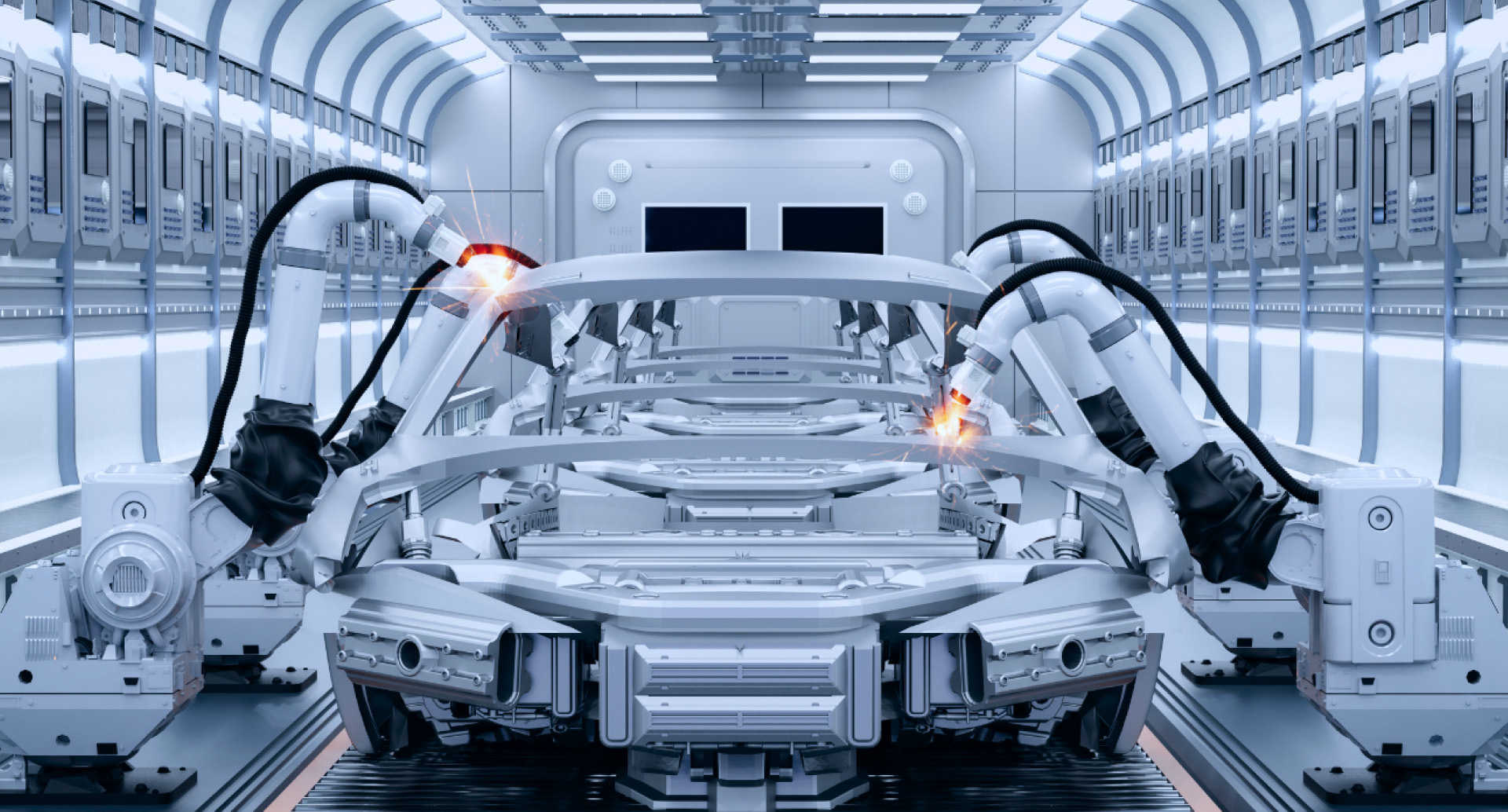The automotive manufacturing industry includes two primary segments: car manufacturers and car parts manufacturers, producing goods for the global market. Regardless of specialty, all automotive manufacturers face common challenges to their business operations:
- Supply chain disruptions.
- Skilled labor shortages.
- Industry regulations.
These challenges require efficient and streamlined processes to ensure optimal productivity and profitability. Ultra Consultants can help marry ERP technology with your business goals for true digital transformation success.
Solution Value
Operational efficiency and cost control are the primary goals. Industry 4.0 technologies are bringing intelligence to manufacturing, offering companies fresh insight into operations, production and supply chain—and an opportunity to find new efficiencies.

Key Focus Areas for Automotive Consulting

1. Enhanced Supply Chain Management
With ERP software, your company can streamline the supply chain processes, improve visibility and reduce costs. By integrating data from suppliers, manufacturers and distributors, ERP systems enable real-time tracking of inventory, demand forecasting and order management. This not only helps in optimizing the supply chain but also ensures timely delivery of products to customers.
Furthermore, an ERP system provides insights into supplier performance, allowing your company to identify bottlenecks and make informed decisions. With a well-managed supply chain, your company can achieve greater efficiency, reduce lead times and enhance customer satisfaction.
2. Improved Scenario Planning and Risk Assessment
For your company to succeed in the automotive industry, scenario planning and risk assessment are critical. ERP systems provide the necessary tools and capabilities to analyze various scenarios, evaluate risks and make data-driven decisions. The integration of financial data, sales forecasts and production schedules enables your company to assess the impact of different scenarios on operations and profitability.
For example, by simulating different manufacturing or marketing scenarios, your company can identify potential risks and develop contingency plans. This allows you to mitigate risks, minimize disruptions and ensure business continuity. With ERP systems, your company can stay ahead of market uncertainties and make proactive decisions to maintain your competitive advantage.
3. Improved Inventory Management
Effective inventory management is essential for your company to meet customer demands and minimize costs. ERP systems provide a centralized platform for managing inventory, tracking stock levels and honing replenishment processes. By integrating inventory data with sales forecasts and production schedules, ERP systems enable your company to maintain optimal stock levels, reducing carrying costs.
With real-time visibility into inventory, your company can avoid stockouts and overstocking. This not only improves customer satisfaction but also minimizes waste and reduces storage costs. ERP systems also enable your company to track and manage serialized inventory, ensuring product traceability and compliance with all regulatory requirements.
4. Accelerated Digital Transformation Projects
Digital transformation has become a buzzword in the automotive industry, as companies strive to leverage emerging technologies and stay competitive. ERP systems play a crucial role in accelerating digital transformation projects. With their modular architecture and flexible capabilities, ERP systems can seamlessly integrate with other digital technologies, such as Internet of Things (IoT), Artificial Intelligence (AI) and Big Data analytics.
By integrating these technologies with ERP systems, your company can gain real-time insights, automate processes and improve decision-making. For example, IoT sensors can be integrated with ERP systems to capture real-time data from vehicles along the assembly line, enabling remote diagnostics and predictive maintenance of your equipment. AI algorithms can be integrated with ERP systems to automate quality control processes, improving product safety, standardizing outputs and reducing defects.
5. Improved Product Safety Management
Product safety is a top priority for the automotive industry. With increasing regulations and customer expectations, your company needs robust systems to manage product safety. ERP systems provide the necessary tools and functionalities to ensure compliance with safety standards, track product recalls and manage quality control processes.
By integrating quality control data with production and supply chain processes, ERP systems enable your company to identify potential safety issues and take corrective actions. This not only improves product safety but also enhances your brand reputation and customer trust. With ERP systems, your company can proactively manage product safety risks and ensure compliance with regulatory requirements.
6. Improved Organizational Agility
ERP systems provide your company with the necessary tools and capabilities to adapt to changing market conditions, customer demands and competitive pressures. By integrating data from various business functions, ERP systems enable seamless collaboration and communication across departments, ensuring a unified approach to decision-making, from design to delivery and customer care.
With real-time visibility into key performance indicators, your company can quickly identify bottlenecks, inefficiencies and emerging trends. This allows you to make informed decisions, adjust production schedules and optimize resource allocation. By improving organizational agility, ERP systems help your business stay responsive, flexible and competitive in a fast-paced industry.
Manage Automotive Industry Changes with New Business Strategies

Business analysts say the automotive industry is entering a period of transformative change. And today’s ERP solutions will help with the technological, production, and marketplace challenges ahead.
Complexity is rising and cost pressures are increasing—driven by consumer expectations, and increasingly stringent environmental and safety standards. The expanding global market will place a premium on effective supply chain management and smart production planning for automakers and parts manufacturers. And car buyers are pushing manufacturers toward online buying models.
As an automotive ERP consulting company with decades of experience, we can provide the automotive business consulting and insights you need to help compete in an ever-changing market. Learn more about ERP in the automotive industry.



